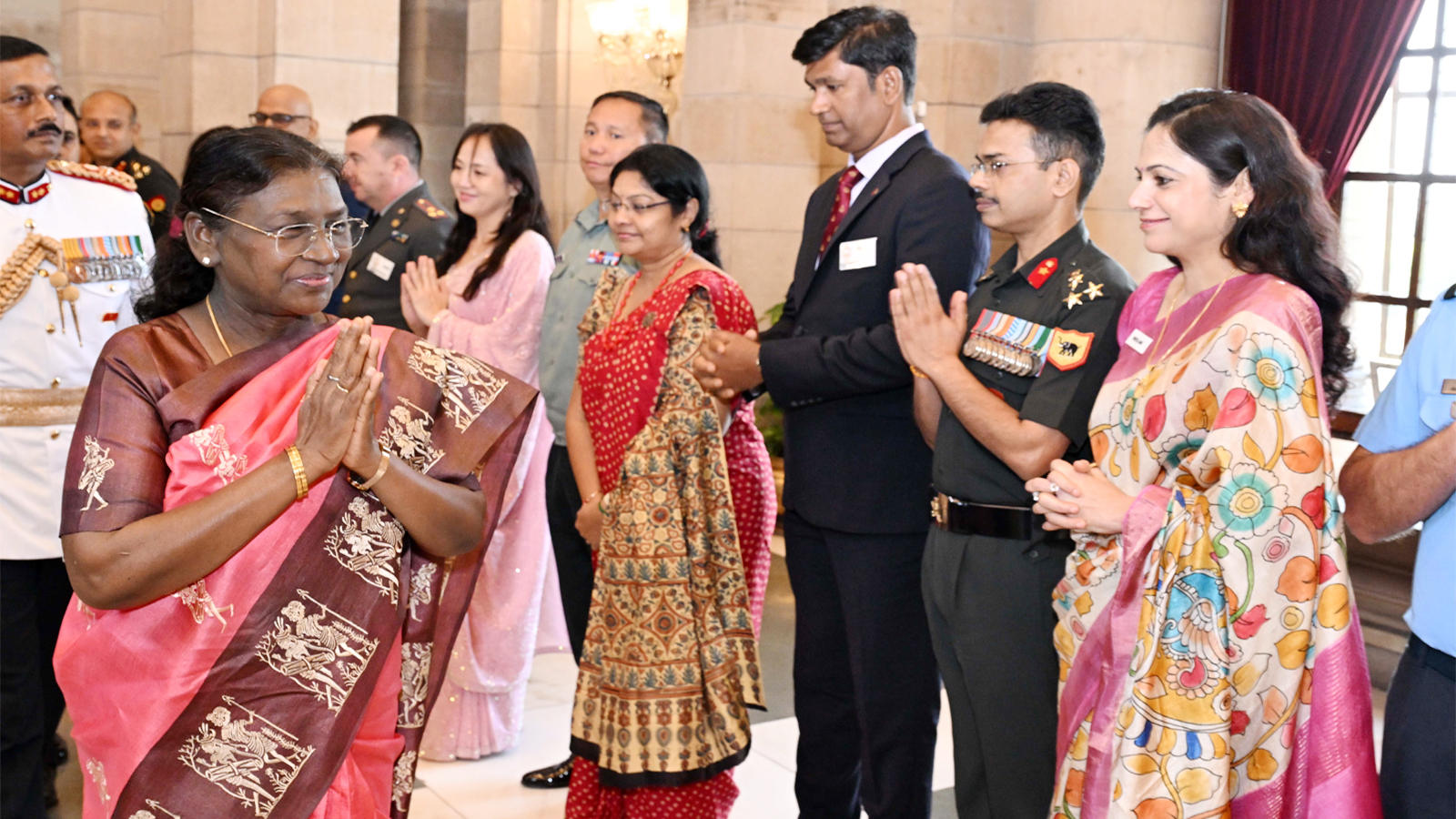President Droupadi Murmu interacted with the faculty and course members of the 65th National Defence College (NDC) Course at Rashtrapati Bhavan on Tuesday, addressing senior officers from the Indian Armed Forces, Civil Services, and 32 friendly foreign countries.
Welcoming the participants, the President said that such a diverse group of senior officers could play a crucial role in strengthening bonds of mutual and international cooperation. She lauded the National Defence College for conducting an international programme that has become a benchmark in strategic education, fostering better understanding, collaboration, and linkages in national, regional, and global security domains.
Reflecting on the NDC’s motto “बुद्धिर्यस्य बलं तस्य” (Wisdom is Strength), President Murmu said that strategic wisdom is the foundation of leadership, especially in the realm of security. She noted that the 47-week comprehensive course would help participants develop deeper strategic insights that would guide them in policy formulation and decision-making roles.
The President praised the Armed Forces for displaying exceptional coordination and strategic foresight during Operation Sindoor, noting that the calibrated tri-service response resulted in effective synergy. “This synergy was behind the successful campaign to dismantle the terror infrastructure across the Line of Control and beyond,” she said, commending the leadership of the Armed Forces.
She highlighted that the process of promoting jointness began with the creation of the Department of Military Affairs under the Chief of Defence Staff and welcomed ongoing efforts to establish Integrated Theatre Commands and Integrated Battle Groups.
Emphasising the importance of adaptability, President Murmu said that the changing geopolitical environment and security contexts demand dynamic responses. She expressed satisfaction that India is transforming its Armed Forces into a technologically advanced, combat-ready force capable of multi-domain integrated operations.
The President underscored that national security rests on both strategic preparedness and universal values. “National interests and objectives form the foundations of the security framework of any nation. However, universal values are at the core of defining our national interests,” she said, invoking the ancient Indian principle of Vasudhaiva Kutumbakam — the world is one family.
Drawing on India’s spiritual and historical traditions, she said the Mahabharata embodies the Indian approach to peace and war — one that prioritises non-violence and diplomacy but upholds courage and duty when conflict becomes inevitable. “The highest importance is given to peace and non-violence, but we are also inspired to fight with utmost resolve when a battle becomes unavoidable,” she noted.
In a reflective observation, President Murmu pointed to the physical proximity of Gandhi Smriti and the National Defence College in New Delhi as symbolic of India’s integrated values. “It is as if nature placed the two institutions close together to remind us of our commitment to both peace and preparedness,” she said.
She invoked Mahatma Gandhi’s belief that non-violence is a weapon of the brave, urging the officers to carry forward the spirit of courage and moral strength in their leadership roles.
Concluding her address, President Murmu expressed confidence that the course would enrich participants with deeper insights into strategic, geopolitical, and defence-related issues. “I wish each one of you a very successful future as strategic leaders in your respective domains,” she said.














